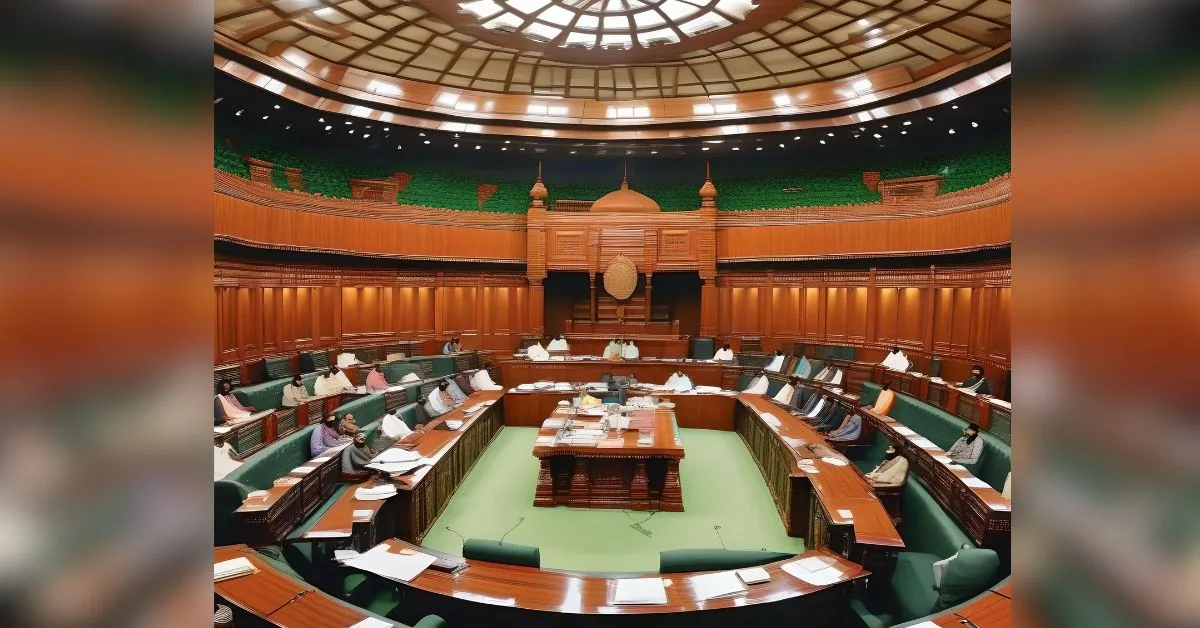
The presence of politicians with criminal backgrounds in India’s legislative bodies is a troubling issue that has persisted for years.
Among the various criminal charges, those related to rape are particularly alarming. This article delves into the number of Indian politicians- especially Lok Sabha and Rajya Sabha members facing rape charges, the reasons behind the lack of punishment, and the broader implications for Indian democracy.
The Numbers: A Stark Reality
According to recent data by the Association of Democratic Reforms or the ADR, a significant number of members in both the Lok Sabha and Rajya Sabha have declared criminal cases against themselves. Specifically, the issue of rape charges among these members is a matter of grave concern.
Lok Sabha
In the 2024 Lok Sabha elections, 46% of the newly elected members have criminal cases registered against them. Among these, 15 winning candidates have declared cases related to crimes against women, including two facing charges of rape under the (now defunct) IPC Section 376(1).
Rajya Sabha
31% of the sitting members have declared criminal cases against themselves. Four MPs have declared cases related to crimes against women, with two facing charges of rape under IPC Section 376(2).
Why Are They Not Punished?
The lack of punishment for politicians facing serious criminal charges, including rape, can be attributed to several factors:
Legal Delays
The Indian judicial system is notorious for its slow pace. Cases can drag on for years, sometimes decades, due to a backlog of cases, procedural delays, and frequent adjournments. This delay often works in favor of the accused, allowing them to continue their political careers without facing immediate consequences.
Political Influence
Politicians wield significant influence, which can be used to manipulate the legal process. This includes pressuring law enforcement agencies, influencing witnesses, and using their power to delay or derail investigations and trials.
Lack of Political Will
There is often a lack of political will to take stringent action against fellow politicians. This is partly due to the fear of setting a precedent that could later be used against other members of the political class.
Electoral Dynamics
Candidates with criminal backgrounds, including those facing serious charges, often have strong local support bases. They may be seen as powerful figures who can get things done, which makes them valuable assets for political parties. As a result, parties are reluctant to deny them tickets or take disciplinary action.
Public Apathy
Despite the serious nature of the charges, there is often a lack of public outrage or sustained pressure to hold these politicians accountable. This apathy can be attributed to a variety of factors, including a lack of awareness, desensitization to political corruption, and a belief that nothing will change.
The Broader Implications
The presence of politicians with serious criminal charges, including rape, in legislative bodies has far-reaching implications for Indian democracy-
Erosion of Public Trust
The trust of the public in the political system is eroded when individuals with serious criminal charges are allowed to hold public office. This undermines the legitimacy of the democratic process and can lead to disillusionment and apathy among voters.
Compromised Governance
Politicians with criminal backgrounds are more likely to engage in corrupt practices and misuse their power for personal gain. This compromises the quality of governance and hinders the development and implementation of effective policies.
Perpetuation Of A Culture of Impunity
Allowing politicians with serious criminal charges to continue in office perpetuates a culture of impunity. It sends a message that powerful individuals are above the law, which can have a corrosive effect on the rule of law and the overall justice system.
In Conclusion
The issue of Indian politicians with criminal backgrounds, particularly those facing rape charges, is a serious challenge for Indian democracy.
Addressing this issue requires a multifaceted approach, including legal reforms to expedite the judicial process, stronger political will to take action against offenders, and greater public awareness and engagement.
Only through concerted efforts can the integrity of the political system be restored and the principles of justice and fairness be upheld.
ALSO READ | Poor Representation Of Women Candidates In Elections Continues
The Story Mug, a Guwahati-based blogzine, believes in telling stories that matter.